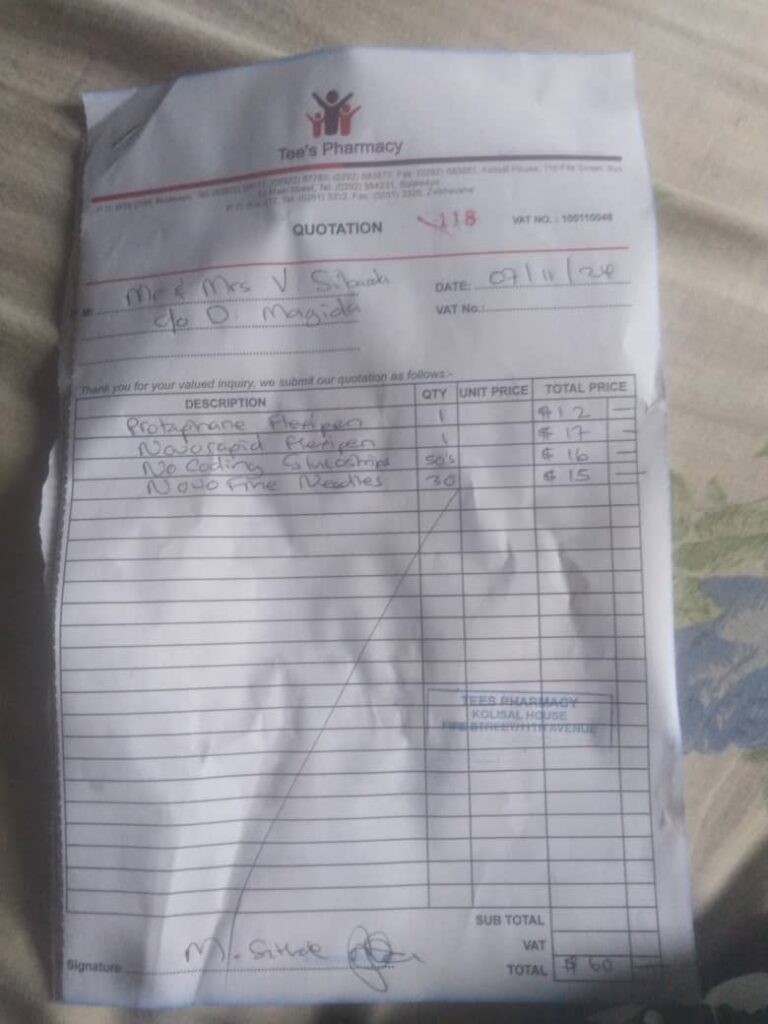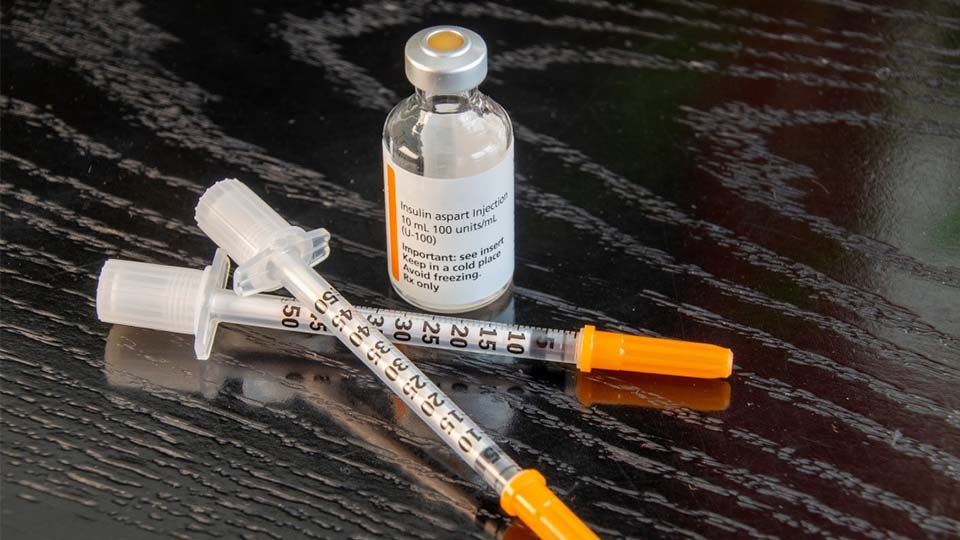A family from Woolendale, on the outskirts of Bulawayo, is seeking financial assistance to purchase insulin for their son, a Form Three student recently diagnosed with type 1 diabetes.
The student, whose name is withheld for privacy, attends Cyrene High School as a boarder.
Type 1 diabetes is a chronic condition in which the pancreas produces little or no insulin—a hormone essential for converting blood sugar into energy. This condition, often diagnosed during adolescence, requires lifelong management.
In an interview with CITE, the boy’s father, Vusisizwe Sibanda, recounted how they became aware of his son’s health issues.
“Our son was always on the bigger side, around 54 kilograms, but when he came home from school for the holidays, he had lost a lot of weight, down to 47 kilograms. We initially thought it was just part of growing up,” said Sibanda. “When I took him for walks, he became unusually thirsty, even attempting to drink dam water out of desperation.”

The boy’s health deteriorated after he returned to school, experiencing symptoms including vomiting, breathing difficulties, and chest pain.
Several tests failed to identify the cause until a blood sugar test revealed extremely high glucose levels, leading to his diagnosis of type 1 diabetes.
“They said it was type 1 diabetes, and they don’t know what triggered it, but it’s very aggressive. He’s unable to produce insulin, and now he has to inject himself twice a day, with dietary changes as well,” explained Sibanda.
Sibanda said they have to supplement his son’s dietary needs, which now require more protein and fruit.
Despite insulin and the prescribed diet, the boy’s blood sugar often spikes to levels as high as 30, far above the ideal range of 4-8.
“His glucose level isn’t stable. They said it should stay between 4-8, but his levels are often around 17, 18, or even 30. During the holidays, we tried to manage it with the prescribed diet, and it seemed better—sometimes around 13-15, occasionally between 7-8, so we thought we were controlling it.”
However, when he returned to school, his condition worsened. “He came back vomiting, unable to eat, struggling to breathe, craving water but still vomiting. We took him to United Bulawayo Hospital, where he was in the Intensive Care Unit (ICU) for four days. It was terrifying. They managed to stabilise him with IV drips. After his discharge, we kept him home for a week before he returned to school,” said Sibanda.
The school’s clinic, while available, presents challenges. “They expect him to self-administer injections and keep his medication. During his last illness, they suspected the insulin might not have been stored properly and that he might not have stuck to his diet, seeing other students with snacks,” he added.
“At the moment, his condition remains unstable. He might feel okay, but the doctor warned that feeling well can be misleading—it could affect his eyes, legs, or kidneys, possibly leading to amputation, blindness, or dialysis.”
Sibanda shared that additional insulin has now been prescribed to control his son’s diabetes.
“The new insulin requires five injections a day—one before each meal and another twice a day, in the morning and evening. It’s financially draining. We no longer have steady income; we live on a plot and we do market gardening, but the costs are overwhelming.”
“The insulin alone costs about US$25 a week, and test strips are US$1 for three, totalling around US$7 weekly. Then there are fruits he needs, like avocados, and vegetables like broccoli, and mushrooms, which are becoming scarce and more expensive,” he explained.
Though the family has considered transferring their son to a closer school to reduce costs, he’s reluctant due to Cyrene High School’s strong academic and debate programs, which he excels in.
“We live on the outskirts of the city, so he’d have to walk from Woolendale to Emganwini to catch transport, which would be difficult. We suggested he become a day scholar, but he’s unhappy with the idea. The school is very competitive, with night study sessions, and he enjoys debate. Cyrene is nationally recognised for debate, so he’s keen to stay,” said Sibanda.
The family is appealing for help with insulin and testing supplies to ease their financial burden.
“The medication is very expensive, and while we pay boarding fees, the school promised to assist but has not delivered on this. If we could get assistance for insulin and test strips, it would ease our struggle with school fees.”
Those willing to help can contact Vusisizwe Sibanda at +263 712 740 192 or +263 712 720 367.

